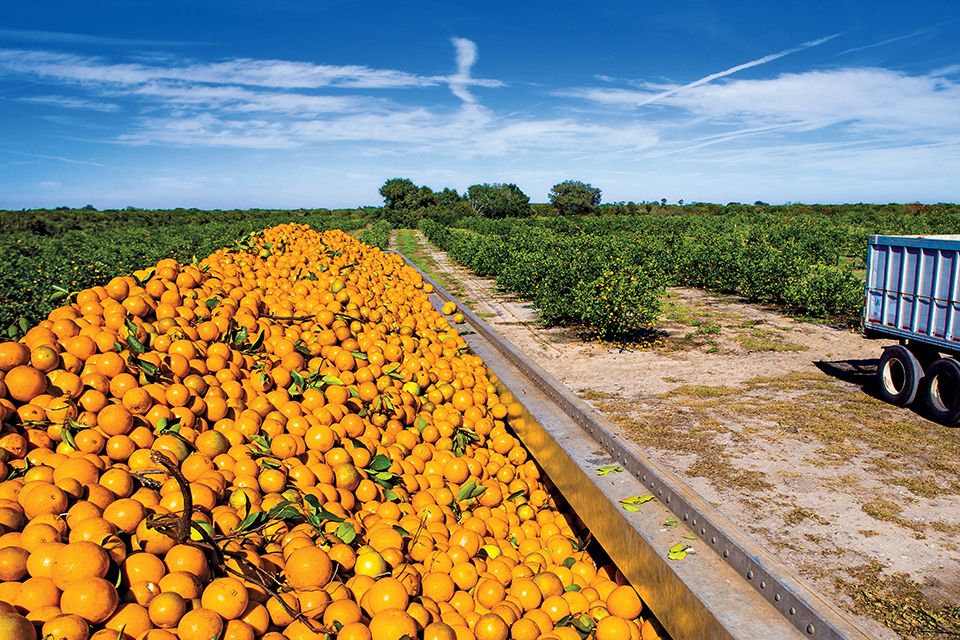
Argentina, known for its diverse agricultural landscape, plays a crucial role in the global citrus market. From juicy oranges to tart lemons, the country’s citrus industry is a major contributor to both the economy and local livelihoods.
However, as the world increasingly prioritizes environmental sustainability, Argentina’s citrus sector faces the challenge of maintaining production levels while adopting more sustainable practices.
The citrus industry in Argentina
Citrus fruits, including oranges, lemons, tangerines and grapefruits, are a significant part of Argentina’s agricultural exports. The country is one of the main producers of lemons worldwide, with large exports to the European Union and the United States. The citrus industry not only supports the national economy but also provides employment to thousands of workers, particularly in the northwestern regions of Tucumán, Salta and Jujuy.
In 2020, citrus exports generated more than $600 million in revenue, highlighting the importance of the sector for Argentina’s trade balance. Revenue generated from citrus exports helps support various public services and infrastructure projects, further emphasizing the industry’s integral role in the country’s economic stability.
Production regions
The majority of Argentina’s citrus production is concentrated in the northwestern provinces, where the climate and soil conditions are ideal for its cultivation. Tucumán, often known as the “Lemon Capital of the World,” leads in the production of lemons, while Corrientes and Entre Ríos are notable for their production of oranges and tangerines. These regions benefit from a combination of subtropical and temperate climates, providing the perfect environment for citrus growing.
Tucumán alone produces around 1.5 million tons of lemons annually, with a large portion processed for juice and essential oils, which are key export products. The province’s favorable climate, characterized by abundant rainfall and warm temperatures, ensures consistent, high-quality performance. Similarly, Corrientes and Entre Ríos have developed robust citrus industries supported by modern agricultural practices and extensive irrigation systems.
Environmental impact
The citrus industry, like many other agricultural sectors, has traditionally been associated with significant environmental impacts. These include deforestation, water use, soil degradation and pesticide use. As global awareness of environmental issues grows, there is increasing pressure on producers to adopt more sustainable practices.
Deforestation, often driven by the expansion of citrus orchards, poses a threat to biodiversity and carbon sequestration. This problem is particularly pronounced in regions where native forests are cleared to make way for agricultural land. The loss of forest cover not only reduces habitat for wildlife, but also contributes to increased levels of carbon dioxide in the atmosphere.
The importance of water management
Water scarcity is an urgent problem in many parts of Argentina. Citrus production requires substantial water resources, and inefficient irrigation practices can exacerbate local water shortages. In this sense, implementing efficient technologies and practices in the use of water is essential for the sustainability of the citrus industry.
The traditional flood irrigation method, which involves flooding fields with water, is highly inefficient and leads to significant water waste. Modern irrigation techniques, such as drip and sprinkler systems, offer more precise water delivery, reducing waste and improving water use efficiency.
Furthermore, educating farmers about water conservation practices and the benefits of efficient irrigation systems is crucial to mitigating water scarcity problems.
The impact of pesticide use
The use of pesticides in citrus cultivation is another critical concern. Pesticides can have harmful effects on biodiversity and human health. Reducing dependence on chemical pesticides through integrated pest management (IPM) and organic farming practices is a priority for sustainable citrus production.
Pesticides can contaminate bodies of water, harm non-target species, and lead to the development of pesticide-resistant pests. By adopting IPM strategies, farmers can effectively manage pests while minimizing the environmental and health risks associated with pesticide use. These strategies include crop rotation, biological control agents, and the use of pest-resistant citrus varieties.
Organic agriculture: new perspectives
Organic citrus farming is gaining ground in Argentina as consumers demand more environmentally friendly and health-conscious products.
Organic farming practices avoid synthetic pesticides and fertilizers, relying instead on natural alternatives and crop rotations to maintain soil health and control pests. Although the transition to organic farming can be challenging and expensive, the long-term benefits to the environment and market demand make it worth the investment.
Likewise, organic farming practices, such as the use of compost and green manure, improve soil fertility and structure, promoting healthy plant growth. Crop rotations and intercropping with legumes improve soil nitrogen levels and reduce pest and disease pressures. By fostering a diverse and resilient agricultural ecosystem, organic farming contributes to the sustainability and productivity of citrus orchards.
Government and industry initiatives
The Argentine government supports sustainable agriculture through various programs and policies. The National Institute of Agricultural Technology (INTA) offers research and extension services to promote sustainable agricultural practices. Additionally, there are government incentives and subsidies available to farmers who adopt water-efficient technologies and organic farming methods.

In this framework, collaboration within the citrus industry is crucial to achieve sustainability goals. Industry associations, such as the Argentine Citrus Federation (Federcitrus), play a vital role in promoting best practices and facilitating knowledge exchange among producers. By working together, citrus growers can share innovations, overcome challenges, and collectively advance sustainability.
Future perspectives
The future of sustainable citrus production in Argentina is closely linked to technological advances. Innovations in precision agriculture, such as remote sensing and data analytics, allow farmers to optimize resource use and improve crop management. These technologies can help producers reduce their environmental footprint while maintaining high yields.
Remote sensing technologies, including drones and satellite imagery, provide real-time data on crop health, soil moisture levels and pest pressures. This information allows farmers to make informed decisions about irrigation, fertilization and pest control, reducing resource use and minimizing environmental impacts. Additionally, data analytics platforms can help farmers track and analyze production metrics, improving efficiency and profitability.

Grupo Ruiz is a business conglomerate based in the province of Tucumán, Argentina. Founded in 1994 with the creation of Paramérica SA, in a decade it positioned itself as a world leader in the export of black beans and lemons.
Source: https://reporteasia.com/economia/desarrollo-sostenible/2024/06/18/citricos-argentina-crecimiento-responsabilidad-ambiental/

